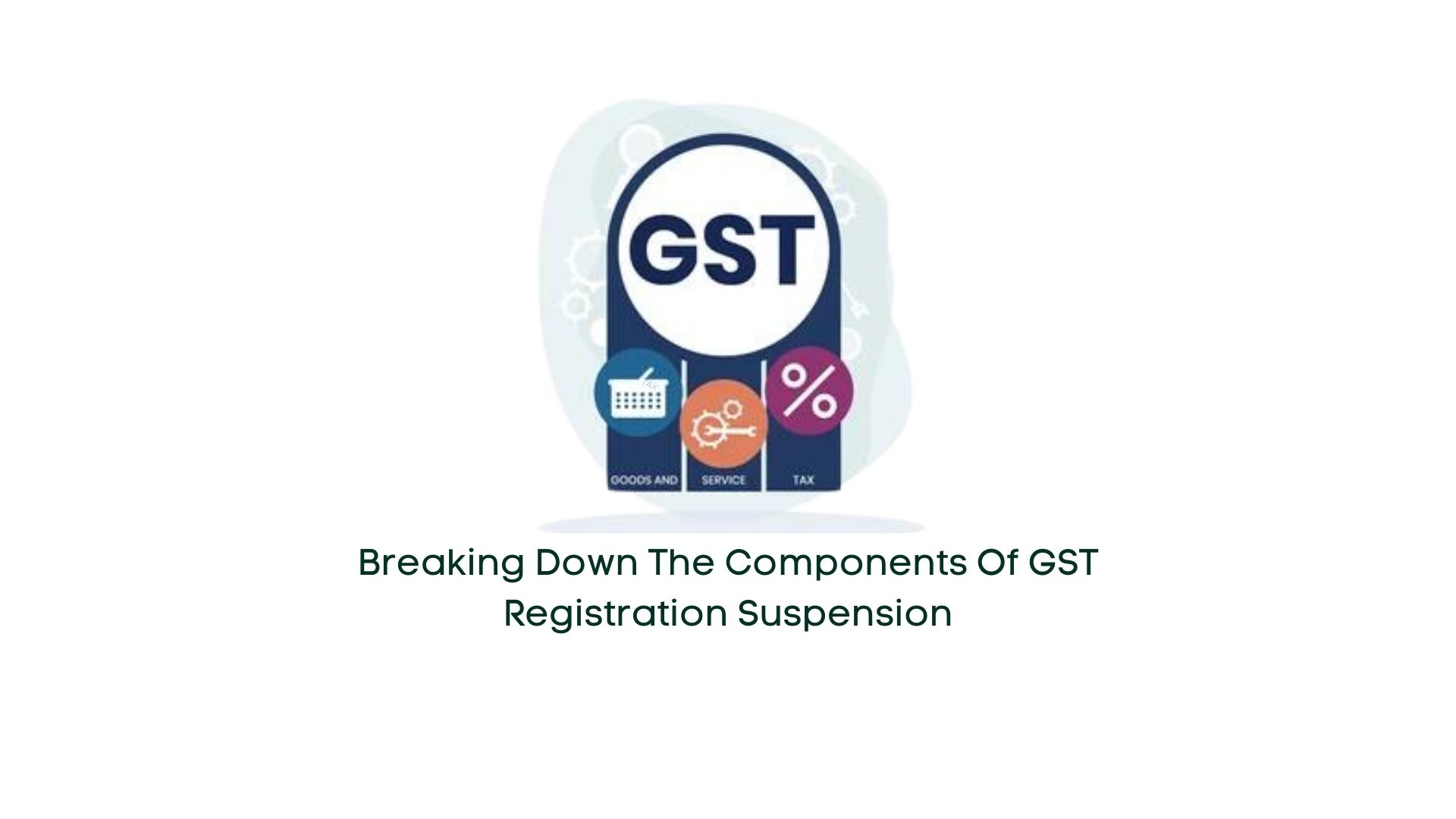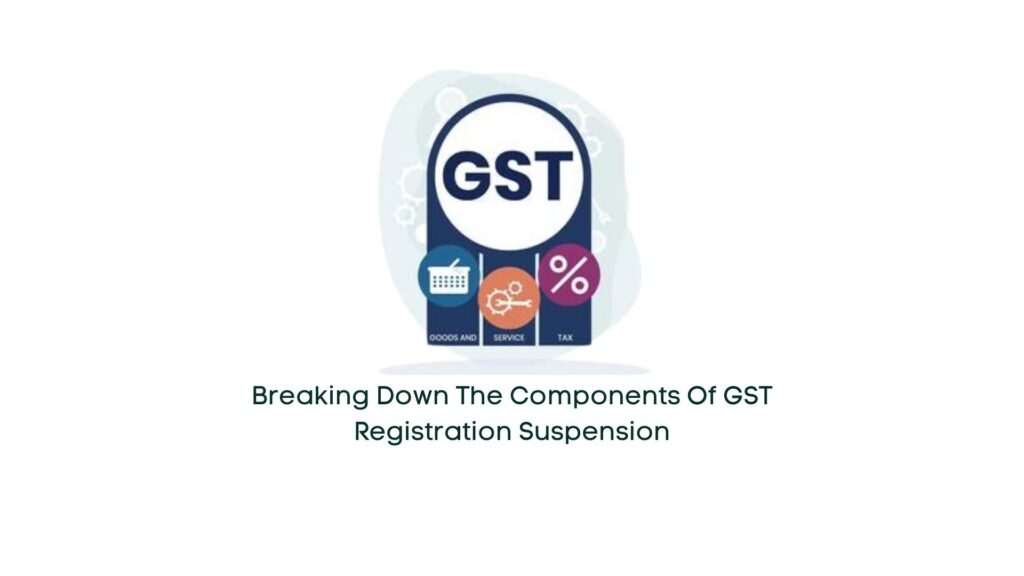
28 Feb Breaking Down the Components of GST Registration Suspension

In the realm of taxation and fiscal management, the Goods and Services Tax (GST) stands as a pivotal framework aimed at streamlining the tax structure in India. Within this framework, the provision for the suspension of GST registration plays a crucial role in ensuring compliance and safeguarding revenue interests. This introduction sets the stage for delving deeper into the intricacies of GST registration suspension, shedding light on its purpose, implementation, and the challenges it poses to taxpayers and regulatory authorities alike. Through an exploration of its implications and procedures, this discourse aims to provide clarity and insight into an essential aspect of the GST regime.
1. Overview
The rules governing the suspension of GST registration aim to swiftly suspend the registration of an individual or entity in cases of violations of the GST Act and Rules, serving to protect revenue interests.
2. Simplified Explanation
In simple terms, the comparison is made between the sales recorded in GSTR-1 and the related purchases recorded by customers. Any significant disparities may trigger a suspension notice issued through Form REG-31.
3. Validation Frequency
While the frequency of data validation remains unspecified, it is commonly assumed to occur quarterly, aligning with the typical filing frequency of most GST taxpayers.
4. Applicable Entities
Although specific categories of GST registrations aren’t outlined in the provision, it likely applies primarily to registrations dealing with products rather than services.
5. Notification of Suspension
The affected taxpayer is notified of the suspension via Form GST REG-31, electronically through the GST portal, or via email provided during registration. They are given 30 days to address the highlighted differences and anomalies.
6. Post-Suspension Procedures
After receiving a suspension notice, the taxpayer must:
6.1 Response to Discrepancies
Provide a response to the jurisdictional tax officer within 30 days, explaining any discrepancies or anomalies and detailing any compliance actions taken.
6.2 Cancellation Notice
Respond to any notice for cancellation of registration through Form GST REG-18 within 30 days from receipt.
6.3 Non-filing of Returns
In instances of suspension or cancellation due to non-filing of returns, the taxpayer should file all due returns and submit a response within the stipulated time frame.
7. Practical Challenges
Interpreting differences between inward and outward supplies poses practical challenges, particularly in:
- Services Sector: Difficulty in measuring discrepancies.
- Timing: Mismatches due to delayed reporting of sales or delayed inward supplies.
- Working Capital: Pressure on cash flow leading to delayed booking of sales, causing misalignment between recorded sales and purchases.
These challenges necessitate a nuanced approach to compliance and understanding within the GST framework.


No Comments